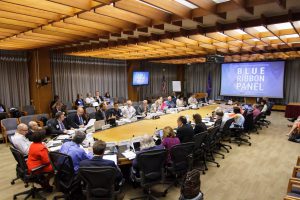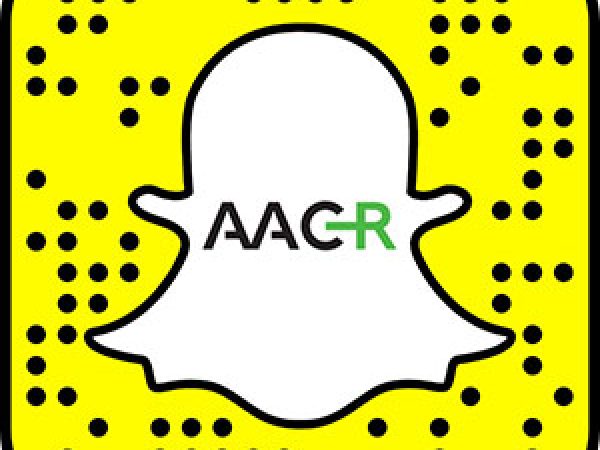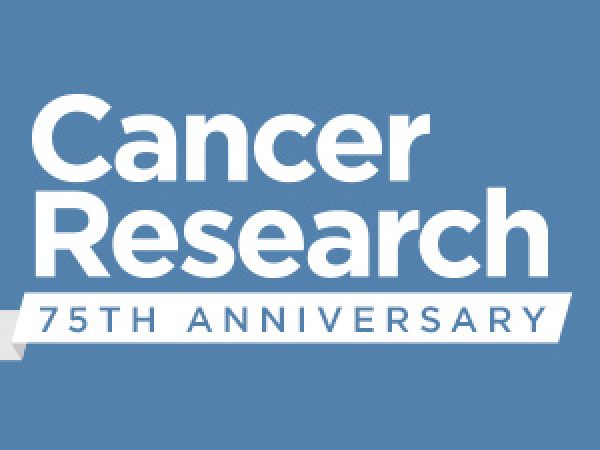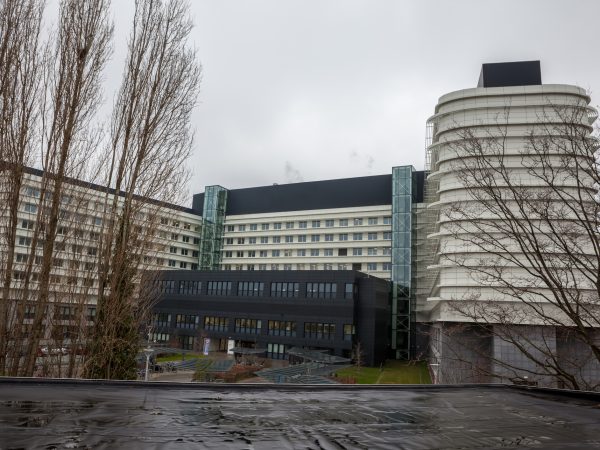Expert Panel Releases Recommendations to Support Cancer Moonshot Initiative

The panel included cancer researchers, oncologists, patient advocates, and private-sector leaders. Photo courtesy of the National Cancer Institute.
The Cancer Moonshot Blue Ribbon Panel released 10 key recommendations Wednesday for transforming cancer research. These recommendations, created by a team of the nation’s leading cancer experts, are designed to support Vice President Biden’s National Cancer Moonshot Initiative, which aims to make a decade’s worth of progress in five years.
The panel released its recommendations at the National Cancer Institute’s (NCI) National Cancer Advisory Board (NCAB) Meeting. A summary:
1. Establish a network for direct patient involvement
This recommendation calls for cancer patients to join a new national network that, with appropriate privacy safeguards, will provide them with a genetic profile of their own cancer and let them “preregister” for clinical trials. That way, when an appropriate trial opens, they can easily be enrolled. Meanwhile, researchers would have improved access to information on patient outcomes.
2. Create a clinical trials network devoted exclusively to immunotherapy
Immunotherapy is clearly a promising area, but understanding why immunotherapies work in only some patients will take intensive research before more patients can benefit. Establishing clinical trials networks devoted exclusively to immunotherapies for pediatric and adult cancers would advance research in this area and could lead to new vaccines.
3. Develop ways to overcome resistance to therapy
A major cause of cancer deaths is drug resistance, when treatments that are initially effective lose their ability to control the disease. This recommendation calls for establishment of multidisciplinary research teams to understand how drug resistance develops and find ways to prevent tumors from resisting the drugs meant to kill them.
4. Build a national cancer data ecosystem
Technology has enabled the collection of a massive amount of patient data. But these data are often stored in proprietary databases or accessible only to a select group of people, limiting their usefulness as a research resource. A national ecosystem could many of the nation’s largest data repositories, improving access to data for researchers, doctors, and patients.
5. Intensify research on the major drivers of childhood cancers
One of the major drivers of pediatric cancers are rogue proteins, known as fusion oncoproteins. Better understanding of how these proteins function is critical for advancing progress against pediatric cancers and accelerating development of new therapies that target these cancer-causing proteins.
6. Minimize cancer treatment’s debilitating side effects
The side effects of cancer and its treatment can be excruciating for patients, particularly for children. This recommendation calls for research to support development of guidelines for managing patient-reported symptoms and side effects of cancer treatment in adults and children, with the goal of helping patients stay on their drug regimens and improve their quality of life.
7. Expand use of proven prevention and early detection strategies
Several cancer prevention and risk-reduction strategies have proven to be highly effective, including tobacco control, colorectal cancer screening, and HPV vaccination. Boosting prevention research to identify ways to increase uptake of these strategies, especially in medically underserved populations, could greatly reduce incidence and death from lung and other tobacco-related cancers, colorectal cancer, and cervical and other HPV-related cancers.
8. Mine past patient data to predict future patient outcomes
Understanding why some patients with the same type and stage of cancer, and same treatment may end up with different outcomes continues to be a research challenge. Analysis of existing tumor tissue from patients who received standard-of-care treatment, stored at biobanks around the country, may enable discovery of genetic and other factors that distinguish which individuals would benefit from standard care versus experimental treatment in a clinical trial.
9. Develop a 3D cancer atlas
Oncologists today rely on past experience, consultation with multidisciplinary teams, published studies, and other sources to make diagnosis and treatment decisions. Providing a web-based catalog of the genetic lesions and cellular interactions in tumor, immune, and other cells in the tumor microenvironment will enable researchers to develop predictive models of tumor progression and response to treatment.
10. Develop new cancer technologies
Under this recommendation, increased public–private sector collaboration to develop new tools or refine technologies that are showing remarkable promise—including implantable microdosing devices that deliver drugs directly into a tumor, and advanced imaging technologies to study cancers at extremely high resolution—would help doctors deliver smarter, more effective therapies to patients.

The National Cancer Institute’s Dinah Singer, PhD, along with AACR Board member Elizabeth Jaffee, MD, and Past President Tyler Jacks, PhD, co-chaired the 28-member panel. Photo courtesy of the National Cancer Institute.
Twenty members of the American Association for Cancer Research (AACR), including two Past Presidents, three Fellows of the AACR Academy, and three members of the Board of Directors were part of the 28-member Blue Ribbon Panel. AACR leaders were quick to praise the panel’s recommendations in a public statement.
“The recommendations that were announced today by the Cancer Moonshot Blue Ribbon Panel are vitally important to accomplishing the goal of the National Cancer Moonshot Initiative, which is to achieve a decade’s worth of advances in five years,” said AACR President Nancy E. Davidson, MD, director of the University of Pittsburgh Cancer Institute. “Therefore, the AACR calls on Congress and the Administration to begin the work of finding a path forward for securing the funding necessary to support these significant scientific opportunities, which ultimately will make a major difference for cancer patients and their loved ones.”
“We are truly at an inflection point for preventing and treating cancer, which is the result of decades of dedicated efforts to increase our knowledge and understanding of the more than 200 diseases called cancer,” said Margaret Foti, PhD, MD (hc), chief executive officer of the AACR. “The recommendations from the Blue Ribbon Panel underscore the fact that today’s highly innovative scientific research, due in part to relatively recent technological advances, is leading the way for the National Cancer Moonshot Initiative and its pivotal role in helping us to markedly reduce cancer morbidity and mortality.”
Jon Retzlaff, the AACR’s managing director of science policy and government affairs, discussed the recommendations with numerous media outlets, including The Washington Post, Science, Nature, and STAT.



